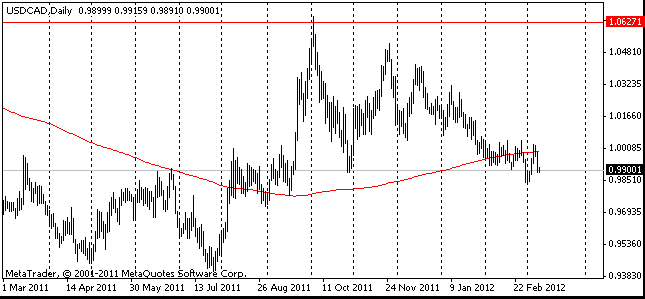EUR/usd
Two-three months ago we took the absence of news as good news. At that time the incoming statistics often proved to be either worse than expected (on US, Australian and Chinese economies) or utterly poor (on the sovereign crisis of the euro-zone). Then in the periods of lull there still were some buyers of cheapened assets, and the situation was gradually changing from ‘positive' into ‘moderately positive' and eventually slipped into what we see now. The recent employment data turned out to be so poor that immediately awakened anticipations of further QE across the market. The confidence in this run of events grew as the scheduled speech of Bernanke approached, but was completely destroyed yesterday afternoon. The tone acquired by the Fed's head was not entirely hawkish as he didn't totally deny the possibility of further incentives. But against general expectations Bernanke didn't provide a slightest hint about how the next QE round would look like and under what conditions it could be launched. Is the history really that cyclic and the markets will have to wait for August to hear the new QE terms and for the fourth quarter to finally see the startup of the programme? It's no good, if the events unfold this way. But probably, the whole story will follow an absolutely different scenario. This week the chief central bankers and G7 Finance Ministers have summoned a conference-call where they, most likely, discussed the EU debt crisis. Then on Wednesday and Thursday we saw that the central bank governors, who earlier willingly agreed to QE in such circumstances, all of a sudden took up a firmer stance. Earlier the ECB as well as the Fed and the BOE treated the EU affairs as the basic cause of uncertainty. So, it would be natural if Germany moderated its stand, thus boosting improvement in financial markets and making further QE unnecessary. But be careful, we won't know this for sure until the g20 leaders provide their comments on the situation at the end of the month. On the disappointment caused by Bernanke's speech EUR/USD dropped below 1.25 at trading in Asia.

GBP/USD
As has been mentioned above, the CBs seem to be less decisive in their actions than it is awaited by the markets. We belong to those who yesterday were disappointed by the BOE's inactivity. The fomc kept the rate and programme size unchanged. Though the average market forecast presupposed the run of events that we described yesterday, a part of traders still expected to see extension of the asset purchase programme. After the release the pound went up and almost touched 1.56. However, the surge of purchases didn't last for long. Actually, many realize that except for the Queen's jubilee Britain has nothing to celebrate. Over the last two quarters the country's economy has been on a sharper decline than that of Europe, and it's hard to find a plausible excuse for the high pound/dollar rate that we see now.

USD/CAD
The Canadian Loonie proved to be more active than we expected. It performed a quite continuous rally on the BOC's hawkish comments, pushing USD/CAD from the high of 1.0445 down to 1.0209 on the first trading day of the month. Remember, we expected that the correction wouldn't be that deep and stop at 1.03. However, the oversold pair was same quick to reverse yesterday. Now trade is right at 1.0315. It's very likely that the sentiments favourable for USD will dominate the market today and, as a result, contribute to the growth in USD/CAD.

USD/JPY
USD/JPY was out of our attention for a while, however this week the pair performed quite an interesting move. The pair was appreciating on risk demand growth and yesterday passed through the level of ¥79 per dollar and broke the resistance line. If the markets stop worrying about Europe, they may well start concerning about Japan. The country keeps sinking in the gulf of trade deficit. The decline is so strong that it affects the current account balance. The latter is 21.2% lower than a year ago. The only comforting news is the upward revision of GDP for 1Q12 from 1.0% to 1.2%.
